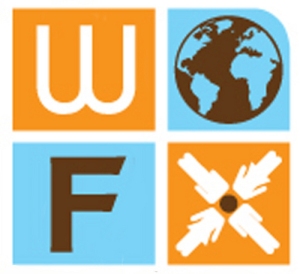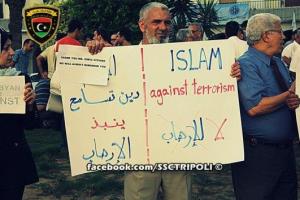Interfaith dialogue and action is a growing trend heard of more and more in the United States, particularly among college campuses. It is, however, not something that most Americans associate with the Middle East. Government and the media both play a huge role in the associations that we as a society make about foreign countries, different groups of people, and religions. Americans, among others, are constantly hearing about religious intolerance and violence in the Middle East but what we need to start focusing on are the efforts being made by those that want something different, those that want peace. There are currently numerous organizations throughout the Middle East that are promoting ideas of religious cooperation and peace along with likeminded individuals who have grown tired of the violence. Religious extremism is an incredibly dangerous reality of the world we live in; one fanatic can turn an entire nation against another. This alone is reason enough to promote interfaith dialogue, to show entire groups that one person’s actions does not define their entire faith.
One organization that is working towards these goals is World Faith, which has chapters throughout the Middle East in; Jordan, Egypt, and Lebanon. The chapter in Lebanon, in partnership with Aie Serve, specifically wants to focus on creating dialogue through action. Meaning, projects will be based on given needs and issues in certain communities. This sort of project based work (community service) will allow individuals to build connections that cross religious borders, helping foster understanding and friendship. Aie Serve, a Lebanese based group, hopes to promote similar ideas to World Faith. One different aspect of their work however is the incorporation of local youth’s artwork with the goal of overcoming social segregation.
A final aspect of these organizations will focus on engaging the media in Lebanon to show a more well-rounded view of religion rather than the static one that is constantly being presented. The hope is to provide the people of Lebanon with a more accurate view of foreigners, including Americans, and their religions. This final goal is one in which American organizations also need to attempt to incorporate. In the United States it seems that the media is never questioned outright for how they portray certain events or people. This could be due to the idea of free speech or due to a sense of complacency or apathy on Americans part. For whatever reason though the media is not being held accountable for the role it has and continues to play in creating anti-Islamic (and other religious) sentiments in the United States and elsewhere.
What I find most amazing about all of these different groups is the hope that it gives me, hope for a more pluralistic future, where religious differences are something to be celebrated and understanding is a given. The fact that interfaith groups are also doing work throughout the Middle East also gives me a great deal of hope. Americans seem to be engrained with this deep seeded idea that “those” people in the Middle East are so vastly different from “us” that there is no way, EVER, for the two cultures and religions to interact peacefully with one another. The efforts being made by World Faith and Aie Serve and countless others is concrete proof of the exact opposite. People are being empowered within their own faith communities to reach out and at the same time they do not fear discrimination based on who they are.
Sound pretty perfect, right? Wrong. The politics of all this seems to keep getting in the way. Ultimately when Americans discuss how different the Middle East is from us etc. religion is only a miniscule part of that. Governments often place people against one another for political reasons and this is no exception. This is a sentiment that the American government has tried to portray since the Cold War, if not earlier. Don’t get me wrong Middle Eastern governments are guilty of doing the same thing to Americans but my point is that religion is not entirely where blame should be placed here. Interfaith dialogue and action are fantastic ways of breaking down walls between different cultures and groups but these are dialogues being carried out on a, unfortunately, very small scale. This change in cultures will most definitely not be a top down sort of movement. Meaning, in order to create widespread lasting change governments will need to begin to consider taking on less hostile views of other countries.
Ultimately the question we need to ask ourselves though is what does this type of work in the Middle East mean for the U.S. and Lebanon in a broader sense? It means that an effort is being made. That likeminded people are beginning to express their frustrations with hatred and violence and joining together to do something about it. It means that a more pluralistic world is one day attainable. And although these groups may be met initially met with outrage it is a testament to this movement and its organizers that this work does not die out because ultimately peace is what is most desired by all. No amount of U.S. involvement in the Middle East and Lebanon is going to bring about lasting change, it must come from within and organizations such as these are efforts being made in that direction.
For more info on World Faith and Aie Serve visit http://worldfaith.org/ and http://aieserve.wordpress.com/

